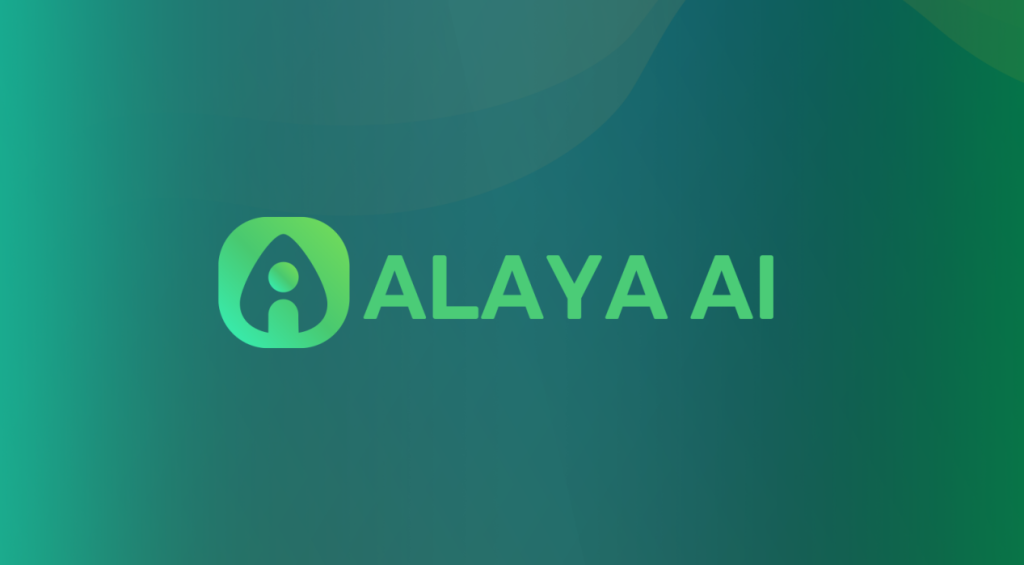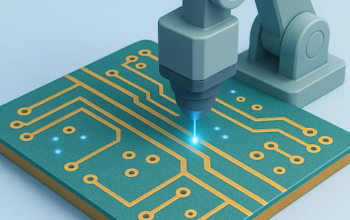
Introduction
Alaya AI is an innovative platform at the intersection of artificial intelligence, data science, and blockchain technology. It stands as a decentralized data network designed to address the growing demand for intelligent, collaborative, and secure data ecosystems. Alaya’s core mission is to empower individuals and organizations to share, train, and monetize data in a decentralized manner without compromising privacy or ownership. In today’s AI-driven landscape, where data is the cornerstone of every algorithm, Alaya AI offers a transformative approach to how data is sourced, managed, and used.
The Foundation of Alaya AI Decentralized Intelligence Layer
What sets Alaya AI apart from traditional data platforms is its reliance on a decentralized intelligence framework. Rather than depending on centralized databases or corporate-owned data pools, Alaya allows users—ranging from individuals to institutions—to contribute and verify data through a distributed ledger. This ensures both transparency and trust in the data process. The blockchain foundation underpins all transactions, making it possible to track data provenance, usage, and rewards in real-time. As more contributors join the network, the quality and variety of datasets grow, enabling smarter and more inclusive AI systems to be built on top.
How Alaya AI Works A Gamified and Collaborative Data Model
Alaya AI employs a gamified approach to data contribution and labeling. Users engage in tasks such as data labeling, verification, and feedback generation, earning tokens or incentives in return. This model encourages active participation and creates a self-sustaining data loop where contributors are directly involved in AI training processes. Unlike platforms that outsource this labor to opaque data farms, Alaya creates a community-centric model where users are stakeholders. It also integrates mechanisms to validate the quality of contributed data through peer reviews and AI-driven auditing systems, ensuring a high standard of reliability across its datasets.
Alaya’s Role in Democratizing Data Access
Data access remains one of the most significant barriers in the current AI ecosystem, particularly for smaller players, startups, and academic researchers. Alaya AI addresses this by making datasets and training models more accessible to a wider range of users. By decentralizing data ownership, it removes the gatekeeping traditionally enforced by tech giants and proprietary vendors. This democratization is especially valuable in regions or industries where access to high-quality data is limited or controlled. Developers and researchers using Alaya gain access to diverse, verified datasets, which can dramatically reduce the cost and time of building AI applications.
Privacy, Ownership, and Security in the Alaya Ecosystem
Privacy and data security are central to Alaya AI’s architecture. Traditional data exchanges often sacrifice user privacy in favor of large-scale analytics. Alaya, however, integrates privacy-preserving technologies like differential privacy and zero-knowledge proofs. These tools ensure that while data can be used to train models, sensitive user information remains protected. Additionally, contributors retain ownership of their data. Through smart contracts, users can define how, when, and by whom their data is used—offering a level of control that is rarely found in current AI infrastructure. This reinforces the ethical dimension of Alaya’s design, making it a responsible alternative to exploitative data practices.
Use Cases and Industry Applications of Alaya AI
Alaya AI’s applications are broad and impactful across numerous sectors. In healthcare, it enables the secure sharing of anonymized patient data for medical research without compromising confidentiality. In finance, it allows for real-time fraud detection models built collaboratively from diverse financial institutions. In education, it can be used to train personalized learning models using student feedback and performance data. Furthermore, industries like supply chain, agriculture, and smart cities can benefit from collaborative AI models that are both accurate and adaptive to localized conditions. The underlying flexibility of the Alaya network makes it suitable for both public and private sector innovation.
Alaya’s Token Economy Incentivizing Contribution and Governance
A key feature of Alaya AI is its token economy, which incentivizes data contribution, model development, and network participation. Tokens serve as a reward mechanism for users who label data, verify quality, or contribute to governance decisions. These tokens can be used within the ecosystem to access premium data, train models, or exchange for other digital assets. Beyond economic incentives, token holders also participate in the governance of the platform, voting on protocol updates, data usage policies, and funding initiatives. This decentralized governance model enhances transparency and ensures that the platform evolves in line with its user community.
The Technical Infrastructure Behind Alaya AI
Alaya AI leverages a layered architecture that includes decentralized storage, smart contracts, data marketplaces, and federated learning frameworks. Its backend is designed to be scalable, secure, and interoperable with existing blockchain and AI systems. The use of federated learning allows models to be trained on local devices without the need to transfer raw data—enhancing privacy while maintaining performance. Interoperability features make it easy for organizations to integrate Alaya into their existing workflows, whether they’re using cloud services, on-premise infrastructure, or hybrid environments. The platform also supports multiple programming interfaces, enabling customization for different technical requirements.
Challenges and Roadblocks: What Alaya Must Overcome
Despite its promising model, Alaya AI faces several challenges. Adoption is one major hurdle—many organizations are still unfamiliar or uncomfortable with decentralized platforms. Educating stakeholders about the benefits and addressing fears around blockchain complexity is critical. Additionally, regulatory uncertainties, especially around data privacy and cryptocurrency use, could affect Alaya’s global rollout. Another challenge is ensuring consistent data quality, which becomes harder to manage as the network scales. Alaya will need to continually refine its validation protocols and invest in community moderation to uphold standards. Nonetheless, with a strong roadmap and dedicated developer ecosystem, these challenges are not insurmountable.
Community and Developer Engagement
One of Alaya AI’s strengths is its focus on community building. Through hackathons, online forums, and educational content, it actively engages with developers, data scientists, and researchers. This open-source ethos ensures that the platform remains dynamic and adaptable to new challenges. It also creates a feedback loop where users can contribute improvements, suggest new features, or report vulnerabilities. The platform’s developer toolkit includes SDKs, APIs, and documentation to help onboard new contributors easily. Community growth is vital not just for technical progress but for ensuring that Alaya stays aligned with user needs and real-world data demands.
Future Prospects and Roadmap for Alaya AI
Looking ahead, Alaya AI plans to expand its capabilities by integrating advanced AI model sharing, multi-chain interoperability, and deeper analytics tools. Future updates may also include native support for real-time data streams, expanding its use cases in IoT and edge computing. Strategic partnerships with universities, NGOs, and industry leaders are on the horizon, aimed at increasing the platform’s footprint and utility. Alaya also intends to improve its UI/UX to make the platform more accessible to non-technical users. As the world continues to generate vast amounts of data daily, Alaya AI is well-positioned to become a pivotal player in how that data is utilized responsibly.
Conclusion
Alaya AI is not just a technological product; it represents a shift in how we think about data ownership, privacy, and collaboration. In an era dominated by centralization and data monopolies, Alaya offers a decentralized, ethical, and inclusive alternative. It empowers users not just to contribute data, but to influence how it is used and rewarded. By bringing together blockchain, AI, and community-driven governance, Alaya is laying the groundwork for a future where intelligence is built not in silos, but through shared human effort. As digital economies evolve, platforms like Alaya will play a crucial role in making AI more transparent, fair, and globally beneficial.
You May Also Read: Myliberla.com General


